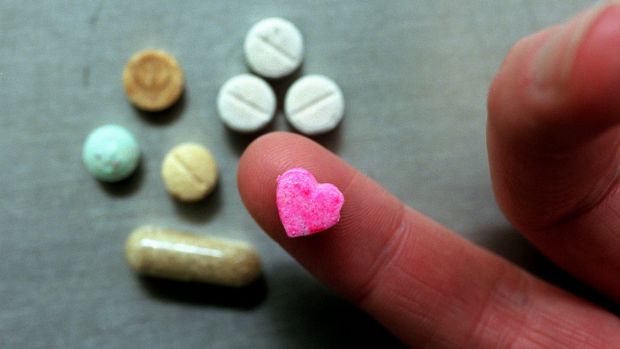
In 2013, 86 per cent of users found ecstasy ‘easy’ or ‘very easy’ to obtain.
Criminal lawyers see the harm caused by illicit drugs, particularly to dependent users. Yet we also see the harm caused by the current prohibitionist model with its heavy reliance on the criminal law to deter drug use.
We see the scale of the black market, the enormous profits made by drug importers and manufacturers and the violence committed by those determined to share in those profits.
We have known users who obtained drugs from the black market and then died from overdoses or contaminants. We have seen users who become small-time dealers to meet their drug needs and then end up in prison for dealing. We know users who have resorted to property crime to pay for drugs from those drug dealers.
Which is why we believe a drug summit needs to be called to address these issues in NSW.
The Criminal Law Committee of the NSW Bar Association is composed of barristers who both prosecute and defend in criminal trials. Some years ago, the committee decided to look at the available research on illicit drugs and the current government drug strategy in order to come to a view on whether law reform was necessary.
In a detailed discussion paper the Bar Council recently released, we found that illicit drug use is prevalent. In a 2010 study, 14.7 per cent of Australians over 14 had used illicit drugs in the previous 12 months. The figure was 27.5 per cent for young persons aged 20 to 29, and 39.8 per cent of all Australians over 14 had used illicit drugs at least once in the past.
We also found that illicit drugs are readily available. In 2013, 86 per cent of users found ecstasy “easy” or “very easy” to obtain. The comparable figure for heroin was 85 per cent. Law enforcement does not appear to reduce availability and while it may increase prices this does not have a large impact on levels of consumption.
We found that the overall harm resulting from illicit drugs, in terms of mortality, morbidity and other social costs, is not clearly greater than those resulting from legal drugs like tobacco and alcohol. Further, the many harms resulting from prohibition, some of which I referred to earlier, are substantial. They flow primarily from the fact that the black market controls drug use, not government.
The committee considered options for reform. One possibility is decriminalisation of cannabis, a drug where the risk of harm, while real, appears modest compared with other illicit drugs and even alcohol and tobacco. That would have a significant impact, given that 12,000 offences for possess/use cannabis were dealt with in NSW courts in 2012-13.
But this would not remove the black market in drugs or respond to what we had found with respect to other illicit drugs.
We concluded that that the goals of drug policy should be to reduce levels of drug-related harm, treat drug addiction as a public health issue, increase the number of drug dependent users seeking treatment and implement effective demand reduction strategies.
We came to the preliminary conclusion, subject to further research and consultation, that the best way to achieve this would be to replace the black market for drugs with a form of legal availability under a highly regulated system.
This might involve licensing controls surrounding production and supply; different levels of control depending on the drug and its potential to cause harm; price regulation; comprehensive treatment services for drug dependence in the community and in prisons; and prohibition on private trafficking, supply to children and advertising.
This is a radical proposal. The Bar Council has not yet formed a view about it. It is most unlikely to be adopted by any Australian government in the short to medium term. However, members of the Criminal Law Committee believe that it is time for a rational, evidence-based, debate about the merits of the current prohibitionist model compared with alternative strategies to deal with what everyone would agree is a particularly serious social problem. The Bar Association will hold a conference to further that debate in May 2015.
Stephen Odgers is chairman of the Criminal Law Committee of the NSW Bar Association.
